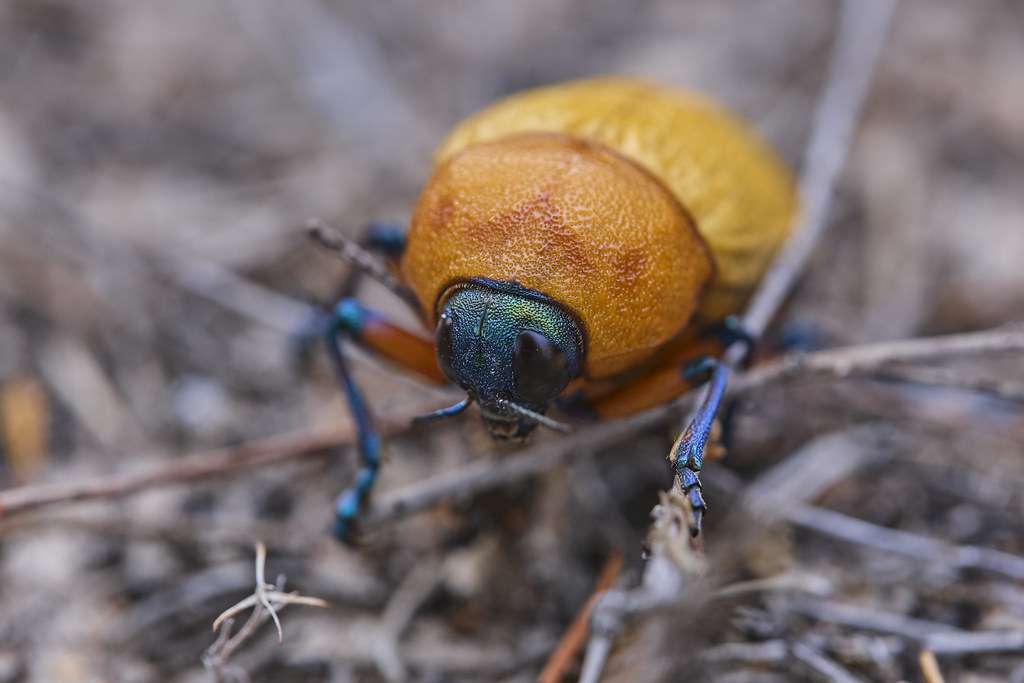The Beetles and the Beer Bottles: A Lesson About Our Own Perception
In the 1980s, researchers in Australia made a strange discovery. A type of beetle, the Australian jewel beetle (Julodimorpha bakewelli), was irresistibly drawn to discarded beer bottles. The bottles, covered in tiny bumps, looked to the male beetles like the textured back of a female beetle. They tried to mate with the bottles and completely ignored their real mates, often with harmful consequences. This behavior was explained by what scientists call a sensory filter: the way living beings are wired to notice only specific things that are important for survival or reproduction.

A Filtered Reality
Just like these beetles, we humans don’t see the full complexity of the world around us. Our brains constantly filter information. What we call “reality” isn’t an objective truth—it’s a version of the world shaped by what our brains decide is important. These filters were fine-tuned over millions of years of evolution, focusing on things that help us stay alive and pass on our genes. Anything outside of those priorities is often ignored, as our brain does this for efficiency—helping us conserve energy and process only what’s most relevant for survival.

The Limits of Human Perception
Think about hope for a moment. Hope is a strong feeling that helps people get through tough times, but it’s not something we can see or touch. For our early ancestors, focusing on hope wasn’t important for survival. Instead, their brains were focused on things like finding food, spotting dangers, or identifying potential mates.
This is why, even when you’re in a beautiful place, you might not fully notice it. Our brains are designed to focus on what keeps us safe and alive, not on things that make us feel happy or peaceful. In today’s world, with so many distractions, this “tunnel vision” makes it even harder to appreciate the small moments that can bring us joy.
The Tunnel Vision of Modern Life
Modern life bombards us with information: deadlines, smartphones, social media. This constant stream of input overwhelms our brains, making our natural filters even stricter. Things that aren’t seen as urgent—like the beauty of a sunset or a kind gesture—slip through unnoticed.
The result? Many people feel like something is missing in their lives, even though there’s so much to enjoy. When was the last time you stopped and truly looked around, thinking, “Wow, this is beautiful”?
How Psychedelics Can Help
This is where psychedelics, like psilocybin or LSD, come into the picture. Research shows that these substances can temporarily change how the brain works. Specifically, they disrupt the brain’s default mode network, which acts like an autopilot, focusing only on what feels familiar or necessary.
When this autopilot is disrupted, people often notice things they usually ignore. A ray of sunlight through the trees, the intricate design of a flower, or even a renewed sense of connection with others. Psychedelics seem to “open the doors of perception,” allowing people to experience a broader, richer version of reality.
A New Way to See the World
This doesn’t mean psychedelics are a magical fix for everything. But they do remind us that the way we see the world isn’t set in stone. They show us that we can learn to pay attention to what truly matters, even without psychedelics.
The Australian beetles were tricked by their sensory filters, unable to see beyond an illusion. But maybe that’s the lesson they offer us: that we, too, can become aware of our own filters and limitations. And once we do, we can take a moment to really look around—to notice the beauty that’s always been there, waiting to be seen.